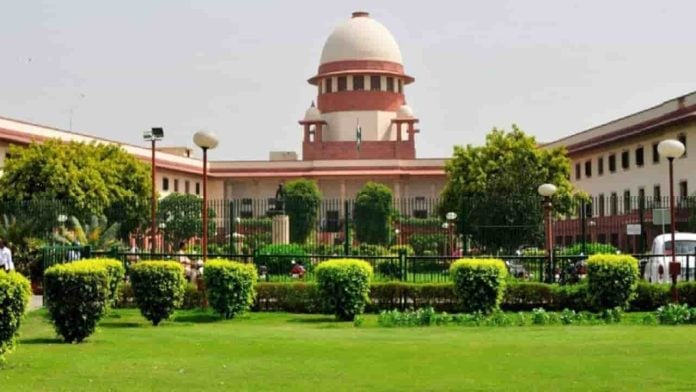The Supreme Court has directed the Ministry of Environment, Forest and Climate Change (MoEFCC) to file a counter affidavit on a petition seeking protection of the Western Ghats.
The Bench of Chief Justice of India (CJI) D.Y. Chandrachud, Justice P.S. Narasimha and Justice J.B. Pardiwala granted the Ministry four weeks time to file the counter affidavit and listed the matter for further hearing on July 25.
Several individuals and organisations from Gujarat, Maharashtra, Goa, Karnataka, Kerala and Tamil Nadu had filed a writ petition in 2019, expressing concerns about deforestation and destruction of Western Ghats.
As per the plea, the Union of India and the governments of six states where the Western Ghats were located, had utterly neglected their responsibility to safeguard the region, resulting in its gradual destruction.
Noting that Western Ghats was a continuous living chain of mountains which passed through these six states, the petitioners sought involvement of all six state governments, along with relevant regulatory agencies in these states and Central ministries for its protection.
The protection of Western Ghats had a direct impact on the right to life and livelihood protected under Article 21 of the Constitution, the plea further noted.
As per the petition, the Ministry of Environment, Forests and Climate Change had set up the Western Ghats Ecology Expert Panel (WGEEP) in 2010 and the High-Level Working Group (HLWG) in 2012.
The WGEEP identified 1,29,037 sq km of Western Ghats as part of it and suggested activities to be allowed or prohibited in Eco-Sensitive Zones 1, 2, and 3. HLWG recommended protecting only 37 percent of the area, which was 59,940 sq km.
As per the plea, the Union government had accepted the HLWG’s report but only issued directions under Section 5 of the Environment Protection Act (EPA),1986, regulating activities in 56,825 sq km (reduced from 59,940 sq km) by an amendment dated December 3, 2018 after Kerala’s recommendation without examination by MoEFCC.
It further said that the 72,212 sq. km. identified by WGEEP as the Western Ghats had been excluded from legal protection.
The Central government has issued several draft notifications since 2014 declaring 56,825 sq km as an Ecologically Sensitive Area (ESA), but no final notification has been issued, it added.
Earlier in September 2022, the Bench of then Chief Justice of India U.U. Lalit and Justice Ravindra Bhat had disposed of a petition, which challenged the draft notification published by the Union Ministry of Environment, Forest and Climate Change (MoEFCC), demarcating over 55 sq km area as ‘Western Ghats Ecologically Sensitive Area’.
Filed by a Kerala-based NGO Karshaka Shabdam (Voice of Farmers), the petition had alleged that the notification dated October 3, 2018 violated the right to life and livelihood of the farmers guaranteed under Article 21 of the Constitution. The CJI directed the petitioner to challenge a fresh notification and dismissed the plea.
In October 2018, the MoEF had issued a notification demarcating an area of 56,825 sq km spread across six states of Gujarat, Maharashtra, Goa, Karnataka, Kerala and Tamil Nadu, as the Western Ghats Ecologically Sensitive Area, based on the Gadgil Committee report and the Kasturirangan committee Report.
As per the plea, while these notifications were aimed at preserving and conserving the Western Ghats, they had not considered essential factors such as population, practicality in displacement and source of livelihood. The petitioner alleged that the notification intended to ‘disrupt’ the lives and ‘discourage’ agriculture in the state.
It sought direction to the state of Kerala not to implement the Gadgil Committee report for the following reasons:
a) No space to displace population from one place to another within the state;
b) There are a large group which are completely dependent on agriculture and banning cultivation of several crops will affect their livelihood;
c) In many villages there are small scale business run by people who uniquely produce soaps, hair oils, tubes and tyre repairs, which will be able to produce from that particular topography.
Stating that land was a subject under the State List as per the Constitution and all powers and authority to control, regulate and put it to use should be vested in the state Government only, the petition contended that the state government could not surrender its own authority and place the control, regulation of more of its land area under the Central government.
Senior Advocate Raj Panjwani and Advocate-on-Record (AoR) Shibani Ghosh appeared for the petitioners.
(Case title: M. Kaviya & Ors vs UOI & Ors)


